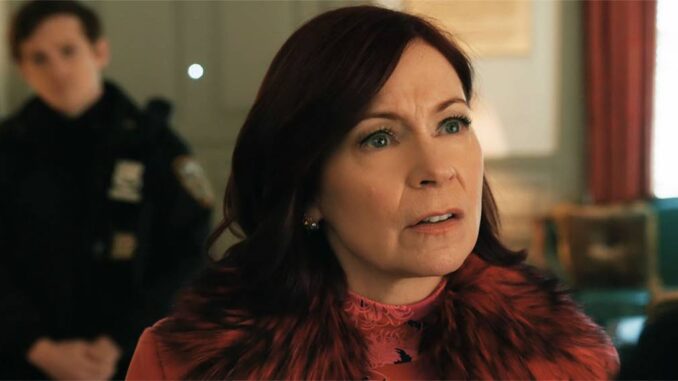
The Quirk That Hurts: Elsbeth's Annoying Inconsistency and the Secret Advantage Season 3 Must Address
"Elsbeth" has charmed audiences with its whimsical protagonist, a brilliant but eccentric lawyer who sees the world through a uniquely skewed lens. Her disarming demeanor, penchant for philosophical tangents, and seemingly random observations often mask a razor-sharp mind capable of unraveling the most intricate legal puzzles. Yet, beneath the delightful surface lies a frustrating inconsistency that prevents the show from truly capitalizing on its secret advantage: Elsbeth’s targeted brilliance. While she often excels in dissecting the core of a case, her moments of genuine, insightful connection with individuals, crucial for eliciting truth and fostering empathy, feel frustratingly sporadic and often sacrificed for the sake of quirky humor. This disconnect ultimately hinders the show from reaching its full potential and is an issue Season 3 must address to solidify its place as more than just a procedural comedy.
The premise of "Elsbeth" hinges on her unconventional methods. She's not a detective who follows the traditional playbook. Her genius lies in seeing connections others miss, gleaning insights from seemingly irrelevant details, and, most importantly, understanding human behavior on a deeper level. However, the show often prioritizes the comedic absurdity of Elsbeth's methods over showcasing the genuine empathy that fuels her insights. We see her distracted by a pigeon, marveling at a decorative bowl, or launching into a tangential anecdote, all while characters are pouring out their hearts or revealing crucial clues. These moments, while often amusing, can feel jarring and interrupt the emotional flow of the scene, diminishing the impact of Elsbeth's eventual breakthrough.
The "secret advantage" lies in the potential for Elsbeth to be a truly exceptional listener and observer, not just a quirky one. When the show allows her to genuinely connect with witnesses, suspects, and even victims, we see glimpses of profound understanding. These instances, often fleeting, showcase a woman who possesses a rare ability to empathize, to see beyond the surface and tap into the core motivations and vulnerabilities of others. This empathy, combined with her sharp intellect, could be her greatest weapon, allowing her to dismantle facades, uncover hidden truths, and ultimately deliver justice.
Unfortunately, the inconsistency in her application of this empathetic ability undermines its effectiveness. One moment she's offering poignant advice to a grieving mother, the next she's obsessing over the color of someone's socks while they're detailing a traumatic event. This fluctuating nature of her character creates a sense of disconnect, preventing the audience from fully investing in her process. It makes her feel less like a brilliant detective with a unique approach and more like a caricature, a collection of quirks and eccentricities designed for comedic effect.
Season 3 of "Elsbeth" needs to address this imbalance. While the humor is a crucial element of the show's charm, it shouldn't come at the expense of character depth and emotional resonance. The writers need to find a way to weave Elsbeth's empathetic insights more consistently into her investigative process. This could involve showing her actively listening and observing, using her quirky demeanor as a tool to disarm and encourage honesty, or allowing her moments of genuine connection to inform her deductions in a more meaningful way.
One possible solution is to explore the reasons behind Elsbeth's occasional detachment. Perhaps her eccentricities are a defense mechanism, a way to shield herself from the emotional weight of the cases she handles. Delving into her backstory and exploring the experiences that shaped her unique perspective could provide context for her behavior and make her character more relatable and believable.
Furthermore, the writers could strategically utilize the supporting characters, such as Kaya Blanke and Officer Wagner, to bridge the gap between Elsbeth's quirky observations and the emotional realities of the case. These characters could serve as translators, helping to contextualize Elsbeth's insights and highlighting the significance of her seemingly random deductions.
In conclusion, "Elsbeth" has the potential to be more than just a lighthearted procedural. By addressing the annoying inconsistency in Elsbeth's characterization and allowing her empathetic brilliance to shine more consistently, Season 3 can unlock the show's secret advantage and transform it into a truly compelling and emotionally resonant experience. By striking a better balance between humor and heart, "Elsbeth" can evolve from a charming novelty into a captivating exploration of human nature and the power of unconventional wisdom.
